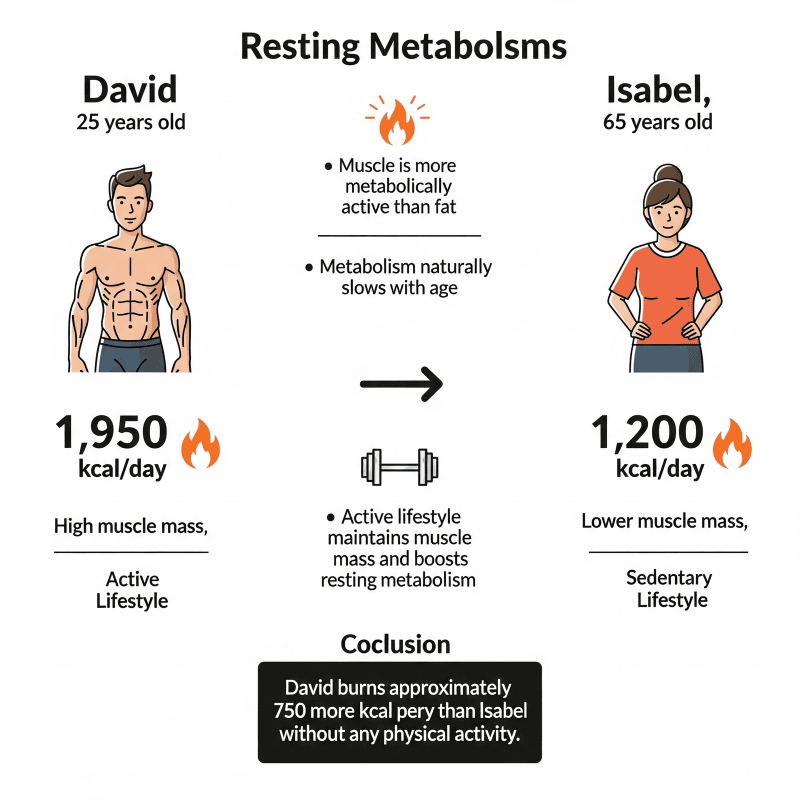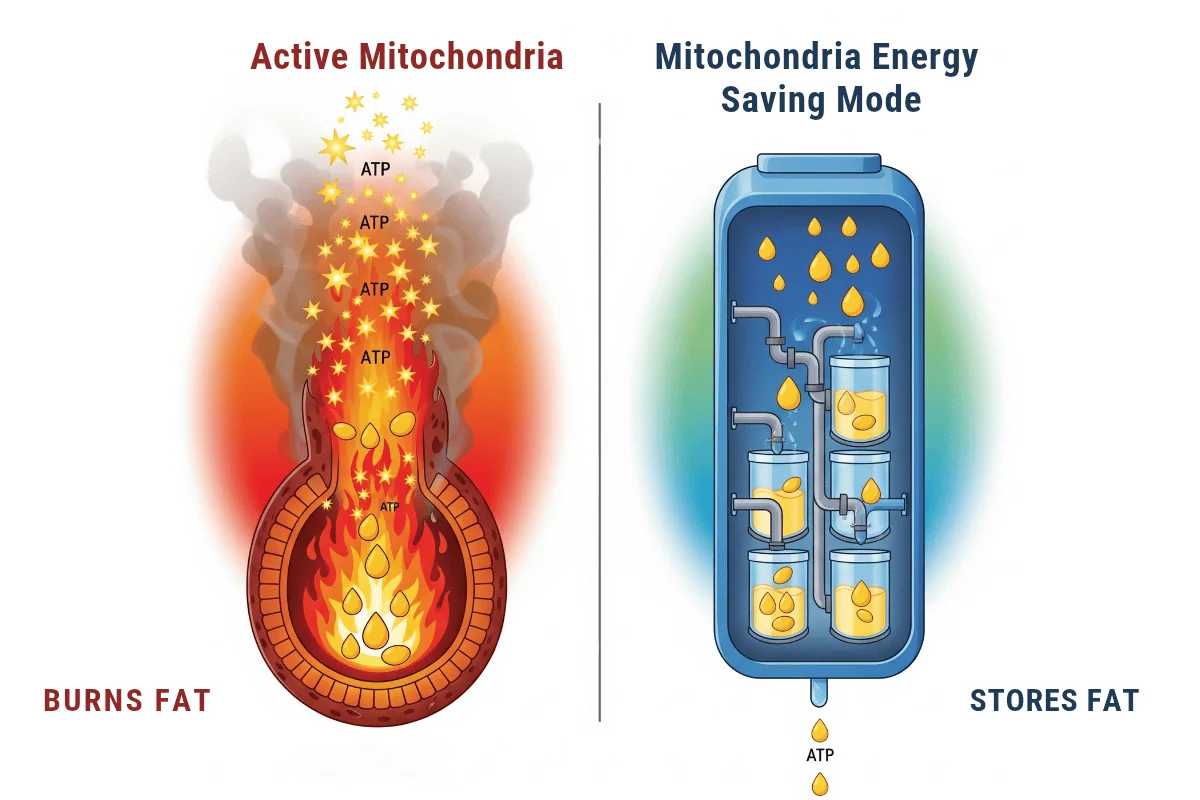
Stuck at your weight? The reason could be in your cells, not your diet.
Have you ever felt like you’re doing everything right, but the scale just won’t budge? You’re eating healthy, exercising, counting calories… and yet, that stubborn fat doesn’t seem to want to leave. It’s an incredibly frustrating situation that leads many to throw in the towel. But what if I told you the problem might not be your willpower, but something much deeper?
The answer could be hidden inside your cells. Sometimes, despite our best efforts, there are biological factors that halt our progress. In this article, we’re going to explore why your body might be resisting weight loss and how understanding this is the first step to overcoming it.
Beyond Calories: Your Basal Metabolic Rate
You’ve probably heard of metabolism, but do you really know what your basal metabolic rate (BMR) is? Think of it as the “base salary” of energy your body needs each day just to stay alive: breathing, keeping your heart beating, maintaining body temperature… all of that consumes calories, even when you’re at rest.
This energy expenditure accounts for 60% to 70% of all the calories you burn in a day. That’s why two people can eat the exact same thing and have completely different results. Factors like genetics, age, sex, and muscle mass determine whether your BMR is faster or slower. If yours is naturally low, you’ll need less “fuel,” and the excess is stored more easily.

The Hormonal Handbrake: When Stress Sabotages You
We live in a fast-paced world, and stress is almost a constant. What many don’t know is that chronic stress has a direct impact on your weight through a hormone called cortisol. Cortisol isn’t inherently bad; in fact, it helps us respond in dangerous situations. However, when its levels are constantly high, things get complicated.
Cortisol can:
- Increase your appetite: Especially for high-sugar and high-fat foods.
- Promote fat storage: Particularly in the abdominal area.
- Affect your sleep: Lack of rest, in turn, throws other hunger-regulating hormones (ghrelin and leptin) out of balance.
Have you ever felt trapped in a cycle of stress and cravings? It’s not your fault. Your body is programmed to react this way. Managing stress isn’t just good for your mind—it’s good for your waistline, too.
The Real Engine: Your Mitochondrial Efficiency
This is where we get to the core of the issue, a concept that is revolutionizing how we understand metabolism: mitochondrial efficiency. Imagine that inside every one of your cells, you have thousands of tiny “batteries” or engines. Those are your mitochondria. Their job is to convert the fat and sugar from food into the energy your cells need to function.
Now, think about this: what happens if those engines become “too efficient”? It sounds good, right? But in terms of weight loss, it’s not. Overly efficient mitochondria learn to generate the same amount of energy by burning very little fuel. Instead of burning fat to produce heat and energy, they conserve it, storing it for the future. Your body, in essence, becomes an expert fat “saver.”

This phenomenon explains why some people seem to have an internal “thermostat” that defends a certain weight. Their cellular biology has adapted to be incredibly good at conserving energy, which makes losing weight an uphill battle. Does this struggle sound familiar?
So, What Can You Do About It?
Understanding that it’s not all about “eating less and moving more” is liberating. If you feel stuck, maybe it’s time to look beyond your plate and start thinking about your cellular health. Reactivating and optimizing the function of your mitochondria could be the missing piece of your puzzle.
This isn’t about extreme diets, but about giving your body the right tools to get its internal engines running at full capacity again.
Research on mitochondrial health is opening new doors. In fact, an interesting video from a health expert explains how optimizing our ‘cellular batteries’ could be the key to naturally reactivating your metabolism.







